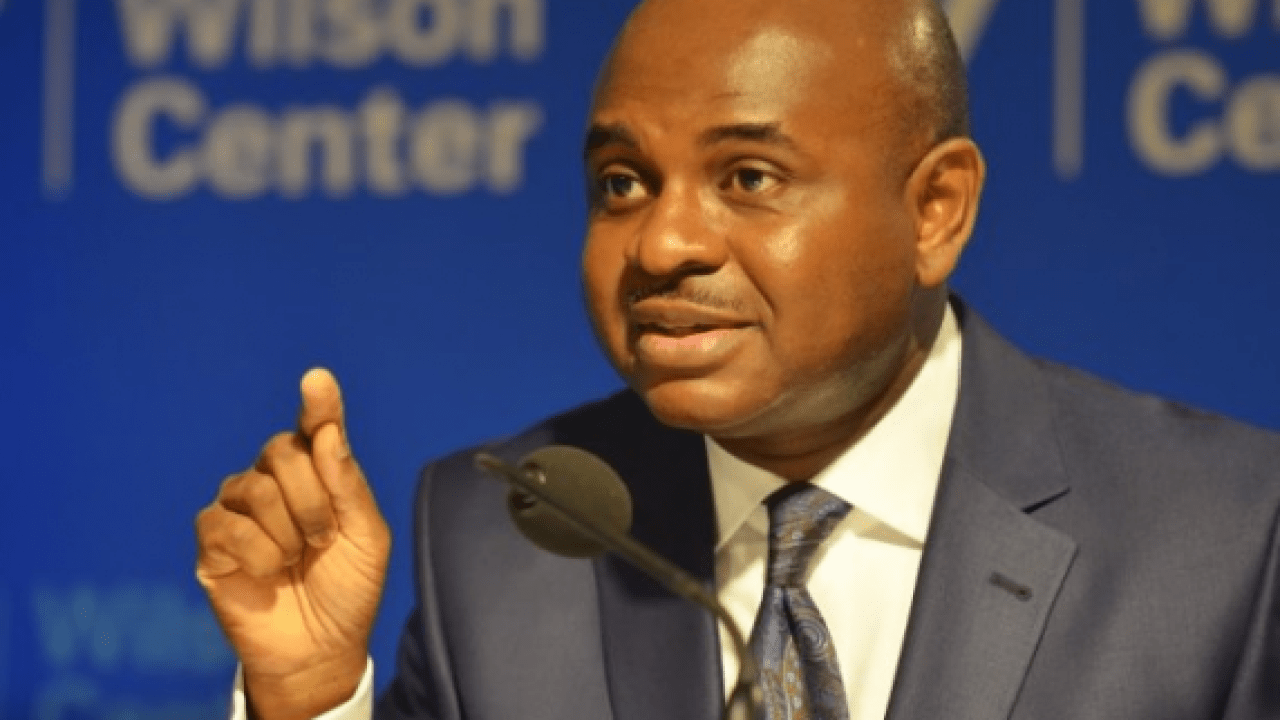Former deputy governor of the Central Bank of Nigeria (CBN), Kingsley Moghalu says the continuous financing of the federal government’s deficits through ways and means by the CBN, contributes to inflation.
Ways and means is a loan facility through which the CBN finances the government’s budget shortfall.
Moghalu spoke in an interview with Arise TV on Thursday.
Recall that the federal government borrowed N6.3 trillion from the CBN in the first 10 months of 2022 through the ways and means advances.
Earlier in May 2023, the senate approved the sum of N22.7 trillion CBN loan spent by the executive arm of the government.
In May 2023, the senate amended the CBN act, increasing the ways and means borrowing threshold from 5 to 15 percent for the federal government.
Speaking on increased inflation rates in the country despite interventions by the apex bank, Moghalu said the inflationary impact “is the biggest and immediate threat”, in such a time of the removal of petrol subsidy and naira float.
“So, inflation in Nigeria is going to just continue to shoot up in the immediate time, that is a fact,” he said.
“This becomes a challenge because in order to attract capital, when you have a very stiff rise in inflation, most times you need to keep interest rates high for a while, but Nigeria’s economy is very funny, it doesn’t always follow the textbooks.”
READ ALSO: Cashless policy not meant to abolish cash transactions –Moghalu
Moghalu said there are many reasons for the continuous surge despite raising interest rates.
According to the economist, what is causing this current round of inflation is “not the standard definition of inflation of too much money chasing too few goods only, there is also a cost-push factor”.
“Also, the central bank itself was contributing to inflation through the monetary phenomenon of illegal financing of the federal government’s massive deficits to the tune of N23 trillion, in ways and means lending,” Moghalu said.
To effectively manage inflation, Moghalu said the CBN needs to be independent and free from the control of the government.
“If the federal government is far more responsible, and disciplined with the budget and with spending, it will help the central bank to manage inflation, but then the federal government is just spending or borrowing like a drunken sailor, and then the central bank alone has to manage the inflationary consequences. It becomes very difficult,” the economist said.
“That’s why we talk about central bank independence because it is necessary to checkmate what we call the time inconsistency problem.”

 Entertainment5 days ago
Entertainment5 days ago
 Health7 days ago
Health7 days ago
 Health4 days ago
Health4 days ago
 Football1 week ago
Football1 week ago
 Football1 week ago
Football1 week ago
 Crime4 days ago
Crime4 days ago
 Education6 days ago
Education6 days ago
 Crime1 week ago
Crime1 week ago

